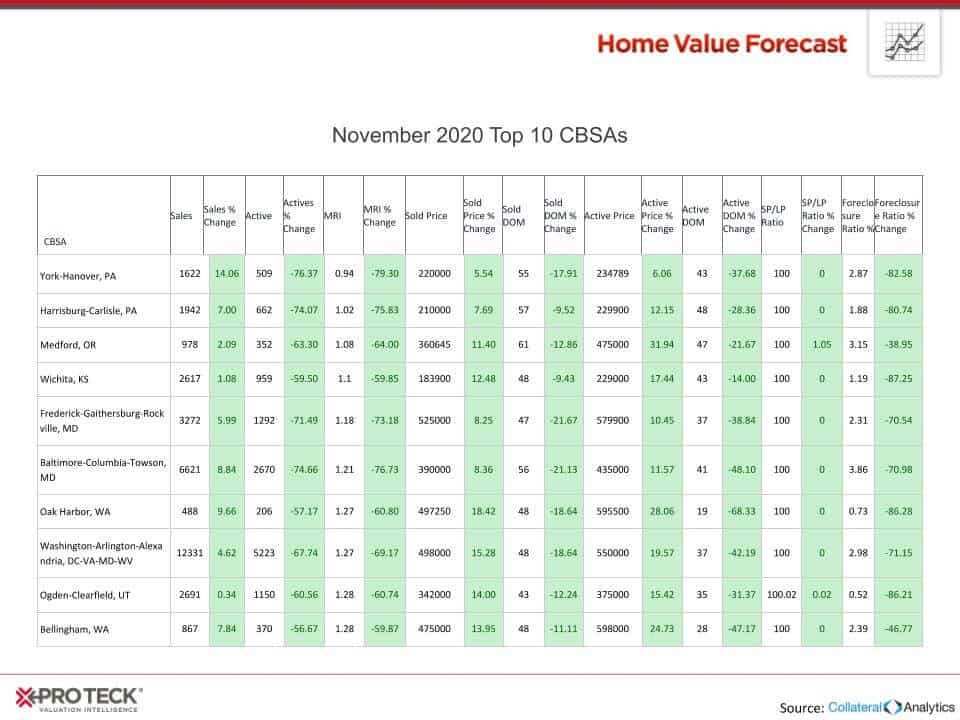Last year was the first in which major institutional investors (hedge funds) operated on a large enough scale to change major real estate markets. There’s been much debate, conjecture and anecdotal reporting as to the size and nature of their activities.
Some have accused hedge funds of driving small investors and home buyers out of foreclosure markets, creating overheated markets that become bubbles and lock buyers out of their traditional neighborhoods. Others credit the funds for soaking up toxic foreclosures before they even hit local markets, preventing price declines that could cripple the housing recovery and creating new, quality housing options for families who choose to rent rather than buy.
Though last year the scale of institutional purchases compared to the size of foreclosure markets was small, their impact was magnified because they were concentrated in a few selected markets: Las Vegas, Oakland, Phoenix, Miami, Sacramento, and Atlanta. In search of better prices and greater supplies, funds are now reportedly branching out to markets like Tampa, Riverside, Detroit, Orlando, and Sarasota.
Tracking Hedge Funds
When the discounts for which foreclosures sell suddenly shrink and REO prices suddenly soar, it’s a sign that someone is spending on foreclosures. Chances are, hedge funds have come to town and set up shop. Hedge funds generally avoid buying REOs because they can purchase pre-foreclosures and bulk sales by lenders and wholesalers at lower prices and larger lots. Sales of pre-foreclosures and bulk sales are virtually impossible to track, but REO sales are listed on multiple listing services and registered as REOs in public records.
Large purchases of defaulted properties that are still in the foreclosure process (not yet REOs) also impact the REO market. Pre-REO purchases reduce the number of foreclosures that become REOs, creating greater competition among small investors and home buyers for the remaining inventories, driving up REO prices and shrinking the foreclosure discount.
Beset by economic woes and a flood of foreclosures, the Atlanta housing market shocked residents and experts alike when the bottom fell out of prices in 2011. The New York Times called Atlanta “one of the biggest laggards in the economic recovery,” (Jan. 31, 2012). Atlanta topped all metros in the nation in foreclosures sales during the fourth quarter of that year (6,458) and its foreclosure discount, a sign of instability, was fifth highest nationally at 48.12 percent.
In the past two years Atlanta’s foreclosure picture is markedly different. Small investors have made more than 8,000 purchases in the city from 2008 to 2011, buying in neighborhoods with high poverty, high vacancy rates and low home values. As housing troubles spread to middle-income neighborhoods, larger investors followed. Georgia still has large foreclosure inventories today, completing 48,000 foreclosures in March. Almost two percent of all mortgaged homes in the state remain in its foreclosure inventories as of the end of March.
Late last year, Atlanta became a target for major national private equity firms who set up shop to buy foreclosures and REOs, particularly in middle-income areas. These institutional investors, or “hedge funds”, generally buy REOs wholesale or pre-foreclosures through lenders. In the markets where they have been most active (Phoenix, Las Vegas, Miami, Oakland, Riverside, Sacramento), they have brought about a seismic shift in foreclosure markets.
Once institutional investors start purchasing, REO prices increase and reduce dramatically the discount from full-priced homes that foreclosures typically experience. Their large scale purchases also drive down inventories. Ripple effects from the scarcity of REOs have driven lower-tier home prices up in other markets by as much as 15 percent over a year ago, compared to only 6 percent in other markets with less hedge fund presence.
Is Atlanta experiencing these effects? Where are the hedge funds active and where can home buyers and small investors still find bargains?
We will look at specifics in the Atlanta Market in Part Two of this three part series.
